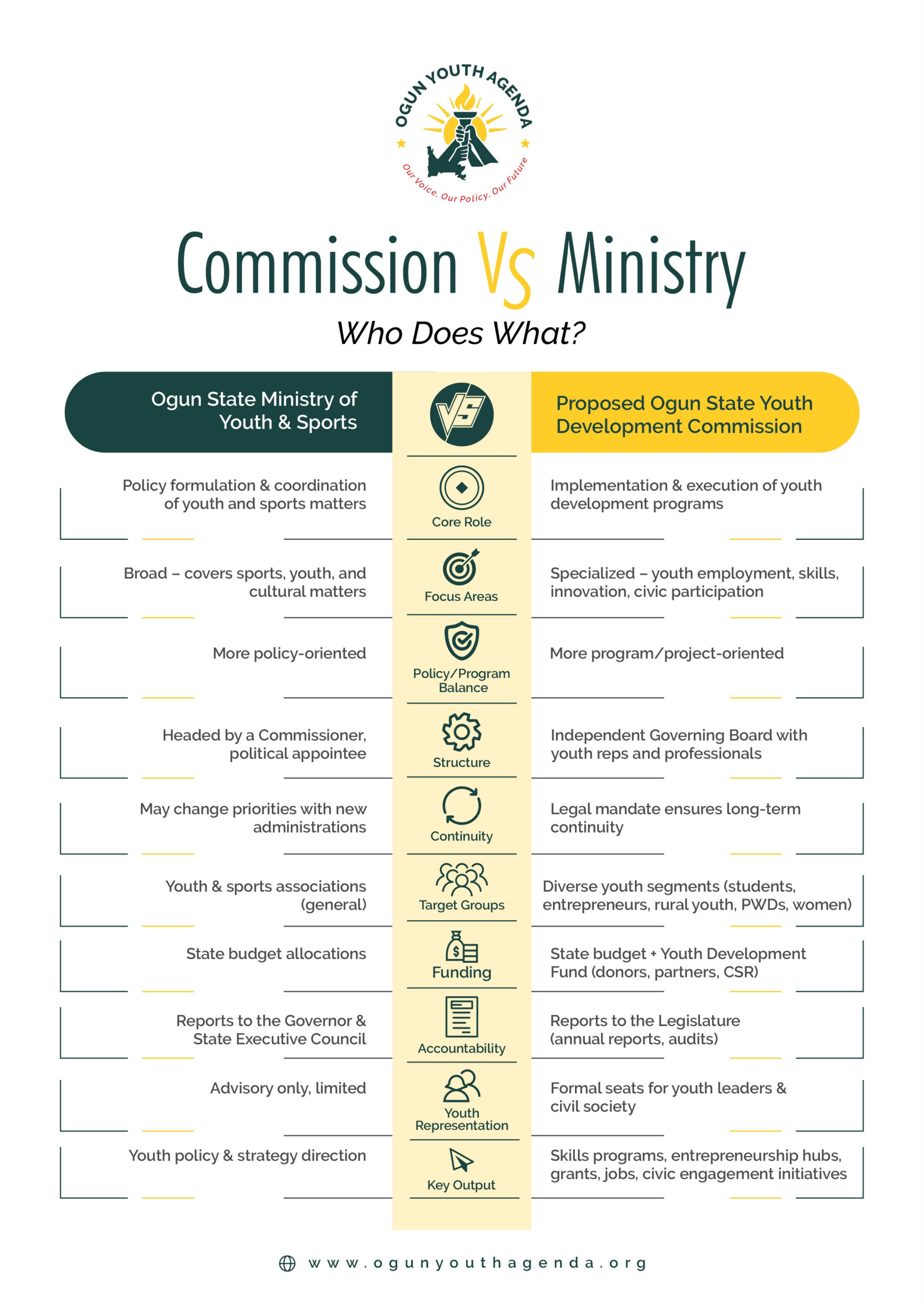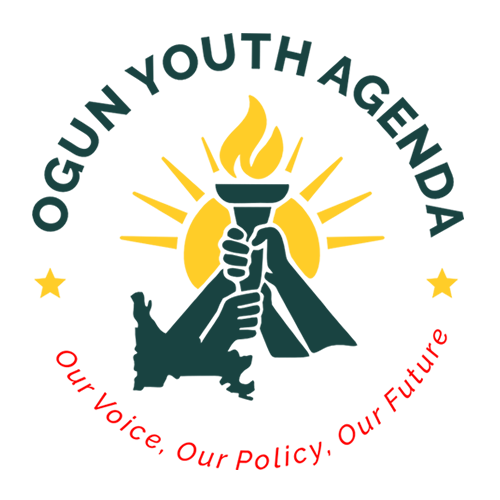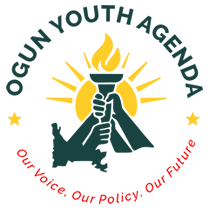


Draft Ogun State Youth Policy (PDF)
Draft Ogun State Youth Development Commission Bill (PDF)








Through awareness campaigns, trainings, and advocacy programs.
With government, civil society, and youth stakeholders.
Ensuring gender balance in all initiatives
Open reporting and accountability for all activities


Frequently Asked Questions (FAQ)
Q1: Why do we need a Youth Commission when we already have a Ministry of Youth?
A: The Ministry sets government direction, but the Commission ensures consistent delivery, coordination, and independent funding. They complement each other, not compete.
Q2: Won’t their roles overlap?
A: No. The Bill clearly defines their responsibilities. The Ministry will oversee policy direction, while the Commission focuses on technical program implementation and monitoring.
Q3: How will this benefit young people in Ogun State?
A: It guarantees long-term programs in entrepreneurship, job creation, innovation, sports, arts, and civic participation, ensuring Ogun’s 5.7 million youths are not left behind.
Q4: Is this realistic?
A: Yes. Lagos State has a Ministry of Youth & Social Development with supporting agencies, while Ekiti recently adopted a youth policy. Ogun deserves a structure tailored to its own needs.
Q5: Will the Commission not become another bureaucracy?
A: No. The Bill proposes a lean, professional management team with performance benchmarks and public accountability mechanisms to prevent inefficiency.
Q6: How will the Commission be funded?
A: Through statutory allocations, partnerships with development agencies, and grants. A dedicated Youth Development Fund is proposed to guarantee sustainability.
Q7: Will young people themselves be involved in decision-making?
A: Yes. The Bill mandates youth representation on the Commission’s Governing Board and requires public consultations on all key youth policies.
Q8: What about rural youth? Will this only focus on urban areas?
A: No. The Youth Policy prioritizes rural development by promoting agriculture, vocational training, and community-led initiatives that directly target rural youth.
Q9: How soon will young people start seeing results?
A: Once passed, the Commission will immediately begin harmonizing existing programs, setting up youth hubs, and rolling out employment and skills initiatives within the first year.
Q10: What if governments change—will the policy and Commission still stand?
A: Yes. A law gives youth development a permanent legal foundation, shielding it from political cycles or changes in leadership.


